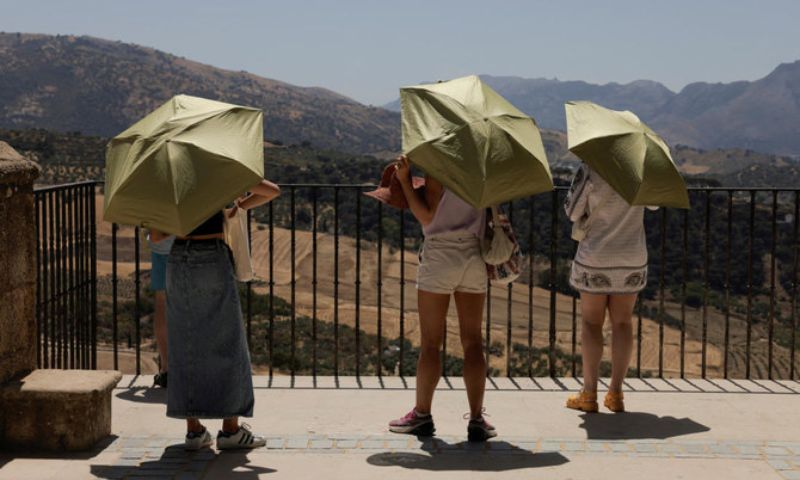RABAT: A heatwave in Morocco has killed at least 21 people within a 24-hour period in the central city of Beni Mellal, the health ministry said on Thursday.
The meteorology department said that the scorching temperatures have gripped much of the North African nation from Monday through Wednesday, with some areas experiencing highs reaching up to 48 degrees Celsius (118 degrees Fahrenheit).
In Beni Mellal, the regional health directorate attributed the majority of fatalities to persons suffering from chronic illnesses and elderly persons, whose health conditions deteriorated significantly due to the extreme heat.
“The high temperatures have exacerbated existing health conditions among vulnerable populations,” the directorate stated in a press release.
Morocco has endured a prolonged period of drought and unprecedented heat this winter, with January marking the hottest month since 1940, according to meteorological records. Temperatures soared close to 37 degrees Celsius (98.6 degrees Fahrenheit) in several locations.
The prolonged dry spell has also significantly reduced reservoir levels, posing a threat to Morocco’s vital agricultural activities. Water Minister Nizar Baraka highlighted that water evaporation has surged to 1.5 million cubic meters per day.
Last year, Morocco recorded its highest-ever temperature of 50.4 degrees Celsius (122.7 degrees Fahrenheit) in Agadir, located in the southern part of the country.
Scientists have pointed to climate change as a contributing factor to the increased frequency, duration, and intensity of extreme weather events such as heatwaves. The rising temperatures and prolonged drought, which has lowered reservoir levels, are a threat to the vital agricultural sector.
Morocco has suffered a sixth consecutive year of drought, and record heat this past winter with January the hottest since 1940, according to the meteorology department which had recorded temperatures approaching 37C in some places.
The High Commission for Planning said in May that the “labour market continues to suffer from the effects of the drought” and reported that the unemployment rate had increased to 13.7 percent in the first quarter, up from 12.9 percent in the same period of last year.
Around 159,000 jobs in the agricultural sector disappeared, the figures showed. Morocco’s record temperature — 50.4C — was set in August last year in the coastal resort city of Agadir.
Globally, Monday was the hottest day recorded since measurements began in 1940, the European Union’s Copernicus Earth observation programme said.
It has previously predicted that daily records would be broken this summer in the northern hemisphere and that the planet would endure a particularly long period of intense heat due to climate change.























